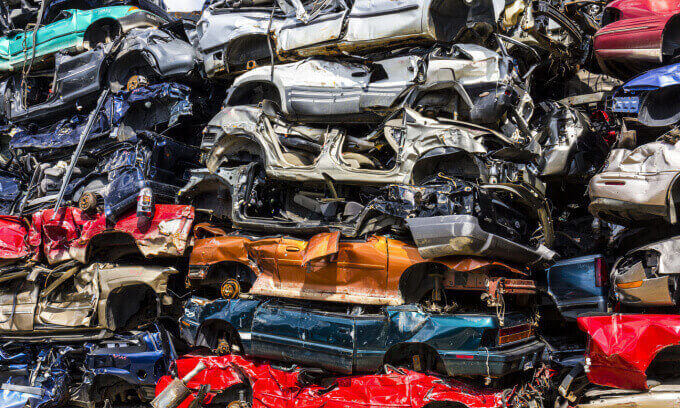Car insurance is a type of insurance policy that helps car owners reduce the financial costs if their vehicle is involved in an accident, is stolen or damaged or causes damage to another person or their property. What is covered by car insurance, and the extent of the coverage, will depend on the type of car insurance policy you buy and the rules of the specific policy. Insurance policies can differ vastly between drivers and providers.
What are car insurance exclusions?
When talking about car insurance, the term ‘exclusions’ means anything that your policy doesn’t cover. So if something were to happen—such as an accident or the theft of your car—and you were to make a claim, your insurance provider would cover whatever is included in your policy, but not provide financial assistance for anything outside of that. There are two types of exclusions:
- Those listed specifically as ‘exclusions’ (may be called ‘general exclusions’ or similar).
- Anything that’s not specifically listed in your policy as being covered.
The subtle distinction in the two points is important to note when trying to compare policies and work out what is covered. You sometimes have to read between the lines when it comes to insurance policies.
What’s covered can also differ between the type of car insurance that you purchase.
What do different types of car insurance policies cover?
← Mobile/tablet users, scroll sideways to view full table →
| Does the type of car insurance cover… | Comprehensive | Third-Party, Fire & Theft | Third-Party Property Damage | Compulsory Third Party (CTP) |
|---|---|---|---|---|
| Injuries or death | No | No | No | Yes |
| Damage to other people’s property | Yes | Yes | Yes | No |
| Damage or loss of your car caused by theft or fire | Yes | Yes | No | No |
| Damage to your car from a traffic accident | Yes | No | No | No |
What does car insurance not cover? Some common car insurance exclusions explained
When it comes to the highest level of optional car insurance cover, comprehensive car insurance, there are several general exclusions that are unlikely to be covered by your policy. These can include:
Events caused by a driver’s actions/inaction
- Driving under the influence of alcohol or drugs (which could include some prescription medication), or (in some cases) if the driver refuses to be tested when asked
- Driving without a valid driver’s licence, or not obeying the conditions or restrictions of their licence (such as not following the rules for P-Platers; or if someone is told by a medical professional that they shouldn’t be driving and does so anyway)
- Leaving your car unlocked or valuables within it
- If your car insurance has lapsed due to missed payments during the event that you are claiming for
- Intentional acts by you, such as hit-and-runs and vandalism, or dangerous driving (sometimes referred to as ‘reckless disregard’)
- If you, or the driver, is doing something illegal (and you could reasonably know about it)
- Drag and street racing or using your car for motorsports
- If you don’t take steps to secure your car after breaking down or being in an accident
- Illegally leaving the scene of an accident
- Neglecting to maintain your car, such as skipping services, not fixing something that’s broken like a brake light or indicator or driving your car whilst damaged
- An overloaded car, whether that be too many passengers for official seating capacity, or carrying a load that is heavier (or bulkier) than what the car could reasonably be expected to tolerate
- Modifications that make your car unsafe or illegal to drive, or any modifications that you haven’t told your insurance provider about
- Occupational use, such as using your car for rideshare or food delivery
- Driving on unapproved roads, such as dirt tracks that aren’t on official maps
- Mould or mildew, which could have been caused by a spillage in the car
- Letting others drive your car (if they are not named on your policy). You may still be covered, but could face higher claim excesses for uninsured/unnamed drivers
- Using your car when transporting dangerous, hazardous or poisonous goods
- Computer viruses that impact your car’s operating system
Events caused by the car itself
- Engine failure and general wear and tear
- Faulty repairs (unless the repairs have been authorised by the insurer)
- If your car is unregistered, or is registered but doesn’t meet the requirements of registration when something happens
- Any pre-existing conditions of your car, such as mechanical defects or recalls
Other
- Liability for bodily injury or death, as this is covered by Compulsory Third Party (CTP) insurance
- If your car is legally seized (such as by the police or government official), and it is damaged, etc, while impounded
- Financial loss because of the ‘insured event’, such as loss of wages, medical expenses, or a drop in your car’s value after an accident or repair
- Damage by vermin, such as cockroaches and ants, birds, rodents or possums
- War and nuclear risks, terrorism, biological contamination, riots, civil war, and/or looting
As mentioned above this is not an exhaustive list. General exclusions can differ between insurance providers. Many of the above exclusions may also apply to third party fire and theft and third party property damage policies.
What are some other car insurance exclusions?
There are some other, less common exclusions that your insurance provider may specify. These could include, for example, policy-specific exclusions.
There are other exclusions that may apply, depending on the type of insurance policy you take out. These include policies with special conditions, such as:
- Age-based exclusions: You may be able to choose a cheaper policy that restricts people under a certain age from driving your car (25 or 30 years old is a common age limit). If a driver younger than the age limit was behind the wheel at the time of an ‘insured event’, this could mean that you won’t be covered. There are often conditions that allow youngsters to drive in certain circumstances, such as an apprentice moving your car during a regular service; or if it’s damaged by someone who is later convicted of stealing your car.
- Rental cars: Where a policy includes cover for a rental car (which is included in some policies or offered for an extra fee), and you damage that rental car, it might not be covered. Check with your insurance provider, as you may need to take out an additional policy to cover the rental car.
- Pets: If your policy covers injury to any domestic pets, there could be exclusions such as if your pet is not appropriately restrained. There may also be no cover for expenses related to the death of the pet (such as burial expenses).
- Trailer/caravan: If your comprehensive car insurance includes cover for a trailer or caravan, you may not be covered for any personal property inside the caravan or trailer, such as furniture, clothing and electronics. It can be worth checking with your insurance provider to see what is covered before you travel.
Why is it important to read all the fine print of your insurance policy before you sign up or make a claim?
When researching car insurance policies online, it may be difficult to get a straightforward answer to the question of what a policy does and does not cover. It’s only possible to find general principles that guide car insurance exclusions, because insurance is about trying to manage risk.
Depending on whether you’re the policy holder or the insurer, you may be approaching questions regarding the appropriate level of cover in different ways:
- The person buying insurance wants to know that if something unexpected were to happen, they could get some help to recover (at least, financially).
- The insurance company is in the business of working out, for that particular person, what the risk is of that ‘unexpected’ happening. For example, car insurance for younger drivers might be more expensive than for more experienced drivers. Insurers design their policies to provide protection that their customers often ask for, but also try to exclude those things that are rare and very expensive to insure against, such as war or a nuclear accident.
So, insurance cover is impacted by many things—where a person lives, the experience of the driver, how the car is used, where it’s parked, the type of policy, the amount of excess, the specific event that resulted in the claim, as well as many other variables. That’s why car insurance policies come with a lot of fine print, which should be thoroughly read alongside any quote a car owner may get from an insurance provider.
These documents include a:
- Product Disclosure Statement (PDS) – which sets out the general rules of the policy and the obligations of both the insurer and the policyholder.
- Target Market Determination (TMD) – describes who the insurance provider thinks the product is most suited to (ie: who they want to sell it to).
- Your quote or Certificate of Insurance – which sets out the name of the policy and if there are any special conditions that apply.
But there are a few general exclusions that car insurance policies typically have in common, which are listed above. However, it’s important to know that the exclusions in the list might not apply to your specific circumstances or your policy. If in doubt, contact your insurance provider directly.
If you want to avoid getting caught out by car insurance exclusions, here are some tips you could take into consideration:
- Drive safely and obey the law.
- Get your car regularly serviced, as well as perform basic at home maintenance.
- Do not make any modifications to your car that could make it unsafe or illegal to drive.
- Tell your insurance provider about any pre-existing conditions your car may have, so they can potentially be covered for.
- Be aware of the occupational use restrictions in your policy.
- If you loan your car to anyone, ask what they intend to do with it. Make sure that they, and what they are planning to do, is covered. Contact your insurance provider if you’re in doubt.
- Read and understand any policy documents given to you by your insurance provider.
Compare Top-Rated Car Insurance
What to do if your claim is denied
If you feel that your car insurance provider has rejected your claim unfairly, you can contact the provider in writing to ask for an explanation on why your claim was unsuccessful. If you’re not happy with their answer, the Insurance Council of Australia (ICA) states that you can use the provider’s internal dispute resolution process, which should be outlined on their website and in their documentation.
If you are still not satisfied, you may be able to settle the matter by making a complaint to the car insurance ombudsman. The Australian Financial Complaints Authority (AFCA) handles complaints by individuals against car insurers, and if you have attempted and failed to negotiate a resolution with your car insurance provider, you may be able to raise a complaint with this body as well.
Decisions by the ombudsman are binding, and if your complaint is successful, the AFCA can compel your insurance provider to pay your claim, amongst other powers. If your insurance provider does not comply with this decision, then they will be reported to the Australian Securities and Investment Commission (ASIC).
You could also consider getting suitably qualified legal advice.
Compare car insurance policies
If you’re comparing car insurance policies, the comparison table below displays some of the policies currently available on Canstar for a 30-39 year old male seeking comprehensive cover in NSW without cover for an extra driver under 25. Please note the table is sorted by Canstar Star Rating (highest to lowest) followed by provider name (alphabetical) and features links direct to the providers’ websites. Consider the Product Disclosure Statement (PDS) and Target Market Determination (TMD), before making a purchase decision. Contact the product issuer directly for a copy of the PDS and TMD. Use Canstar’s car insurance comparison selector to view a wider range of policies. Canstar may earn a fee for referrals
- Save 15%^ on your first year’s premium when you purchase a new Car Insurance policy online.
- 24/7 Phone & Online Claims.
- Budget Direct - Insurance Solved.
- Insurance that's a bit more you-shaped.
- Canstar’s 2025 Most Satisfied Customer Car Insurance – NSW, VIC, SA
- Lodge a Claim 24/7 with our Advisors
Cover image source: Jonathan Weiss/Shutterstock.com








